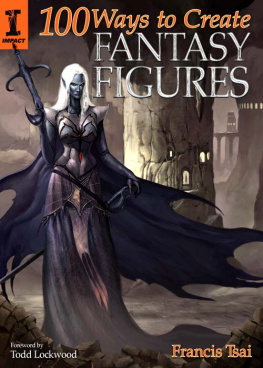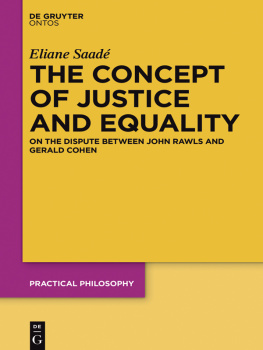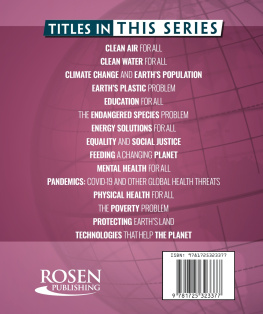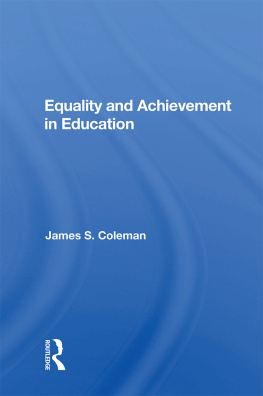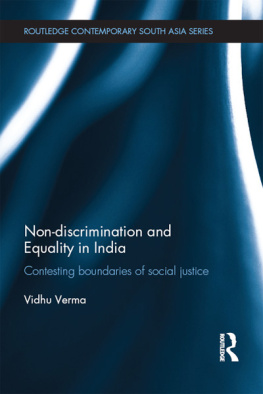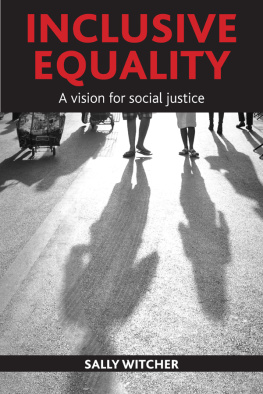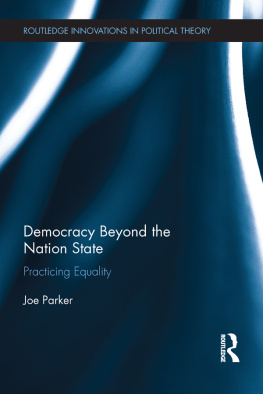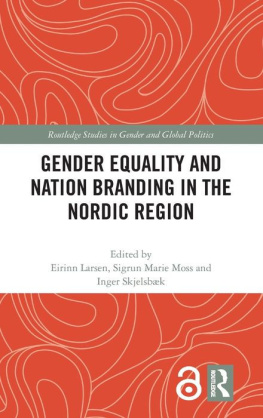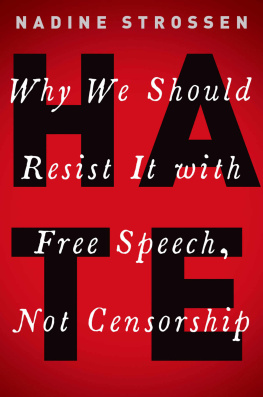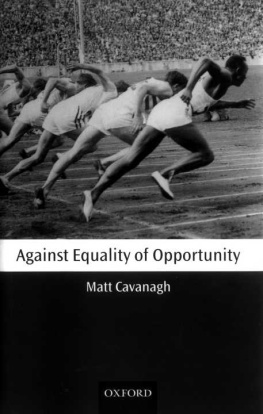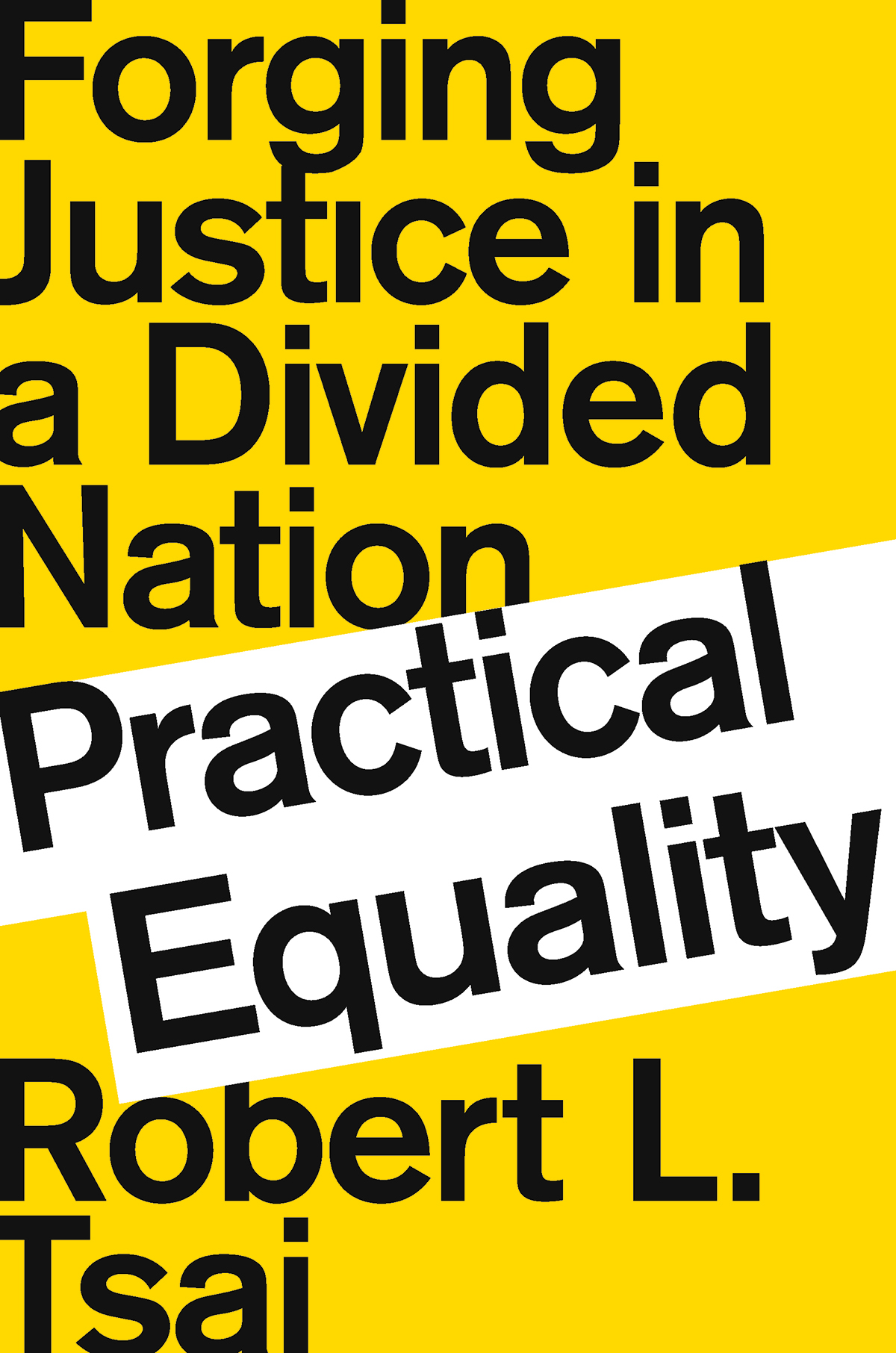Contents
Guide
Page List

PREVIOUS BOOKS BY ROBERT L. TSAI
Americas Forgotten Constitutions:
Defiant Visions of Power and Community
Eloquence and Reason:
Creating a First Amendment Culture
PRACTICAL
EQUALITY

Forging Justice in a Divided Nation
ROBERT L. TSAI

For the misfits and the losers
We have called by different names brethren of the same principle.
THOMAS JEFFERSON, 1801
CONTENTS


PRACTICAL EQUALITY

ON FRIDAY AFTERNOON, JANUARY 27, 2017, the news broke that President Donald Trump had signed an executive order that prohibited travelers from seven Muslim countries from entering the United States and suspended the refugee admission program for 120 days. President Trump found the admission of Syrian refugees detrimental to the interests of the United States and paused that program until further notice. Whether or not they agreed with the policy, most people took these actions for the fulfillment of his campaign pledge: a total and complete shutdown of Muslims entering the United States.
Chaos reigned, as the changes were implemented in a hurry over the weekend. Travelers had no clue that they were now barred from the country until they landed at an American airport. A toddler who suffered severe burns in a refugee camp was prevented from making the trip to a U.S. hospital for surgery. A sixty-nine-year-old Iraqi man on his way to visit his son in Los Angeles had his passport seized in Qatar, so he missed a connecting flight. The presidents order also prevented an Iranian baby with a heart defect from uniting with family in Portland, Oregon, and receiving urgent care.
White House staff bickered publicly with Homeland Security over whether the ban included people who already had green cards. Customs and Border Patrol agents hid from inquiring reporters and distraught family members, uncertain what to say or do.
Eager to help, lawyers and activists descended on airport terminals all over the United States, while protests against these measures broke out in major cities: San Francisco, Los Angeles, Washington, D.C., New York, Chicago. Governors and mayors soon got into the act, vowing to help overturn the administrations misguided and un-American policy. In many ways, the spontaneous actions by ordinary citizens and professionals represented the best of our constitutional tradition, recalling other popular efforts to defend the principle of equality on behalf of an embattled minority. A few states led the way in the courts, with the states of Washington, Hawaii, Minnesota, and New York filing lawsuits against the administration.
Now, imagine, for a moment, you are an advocate involved in one of these disputes. In preparing your presentation, you have to anticipate your audience. You might dream of standing before a judge who is already sympathetic to your cause, but the reality is that most jurists are not crusaders but rather technicians. And you have to keep in mind not merely one person in power, but all of the others who might later weigh in on the matter, because democratic justice is ultimately a collaborative enterprise over time. A trial judges decision can be reviewed by an appeals court. Every appeals court will have at least three decision makers with varying perspectives, and victory in the U.S. Supreme Court requires getting to five votes. Whatever the courts ultimately decide, the president, his advisors, and even Congress will always have another crack at the issue.
This point can be generalized: To some degree, politics is always involved with questions of constitutional law. Especially in controversies that implicate national security and political identity, as this one does, the audience also consists of regular citizens not directly involved in protests or lawsuits. After all, judges typically only trim the edges of a national policy rather than lash themselves to a program so as to bring it to a screeching halt. Its important to reach activists and voters who might feel a kinship toward strangers affected by a policy, public officials who can influence the making of policy, and employees of bureaucracies charged with implementing it.
Concerned citizens face merely a slightly different version of the same situation faced by lawyers. The question for everyone is: What is to be done to confront injustice when the timing doesnt seem right or the odds appear stacked against you?
The most promising argument is that the government has denied the travelers equal treatment under the law, a principle guaranteed by the Constitutions Religion Clauses and the Fourteenth Amendments Equal Protection Clause. As a candidate, Trump had repeatedly vowed to stop Muslim migration to the United States. He and his surrogates drew on the worst possible stereotypes of Muslims, broadly blaming them for terrorism, murder, and other unsavory acts. Stoking fear and suspicion of Muslims, they had advocated sweeping measures that would adversely affect this group of worshippers regardless of individual culpability. Characterizing plentiful evidence of ethnonationalism as a form of religious bigotry, a group of law professors argued in a friend-of-the-court brief that the presidents order was infected with anti-Islamic prejudice, and that such an illiberal sentiment ultimately corrupts and distorts any motive it touches.
As a partisan, its easy to become enamored with ones own argument and overly secure in its correctness. But thats a mistake. For the federal government responded that it had legitimate national security reasons for issuing a policy that treated visitors from these countries differently from other travelers: the seven countries were experiencing some level of unrest and their security measures couldnt be trusted. By the way, government lawyers pointed out, the executive order didnt exclude all Muslims in the world so it wasnt a total shutdown. Trumps casual and undisciplined statements aside, the policy did not amount to an act of religious animus.
Beyond these formal objections, what if more subtle considerations played a role in how judges saw the case? What if someone hesitated to declare the president a religious bigot so early in his tenure because that might cast moral aspersions on Americans who voted for him, many of whom backed his candidacy precisely because they shared his view of Islam as a threat to American democracy? Someone might also worry that an equality violation could hamstring a presidents later policy decisions in the fight against terrorism. Others might fret that deciding the dispute on equality grounds would alter the social good at stakeadmission into the United Statesby making it available to foreigners in novel and troubling ways.


